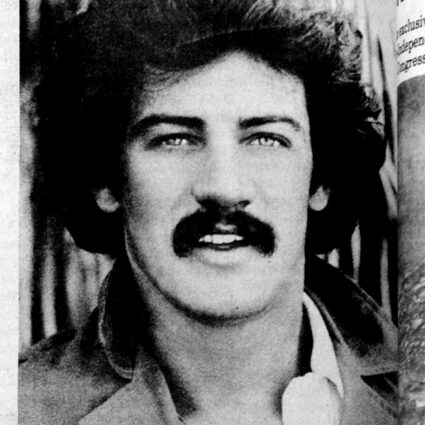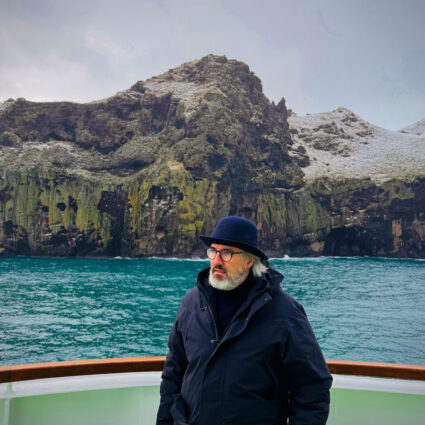Albuquerque theater companies are persevering through financial considerations and pandemic concerns to present DIY offerings and mainstream performing arts, including Hamilton, during the 2021-2022 season.
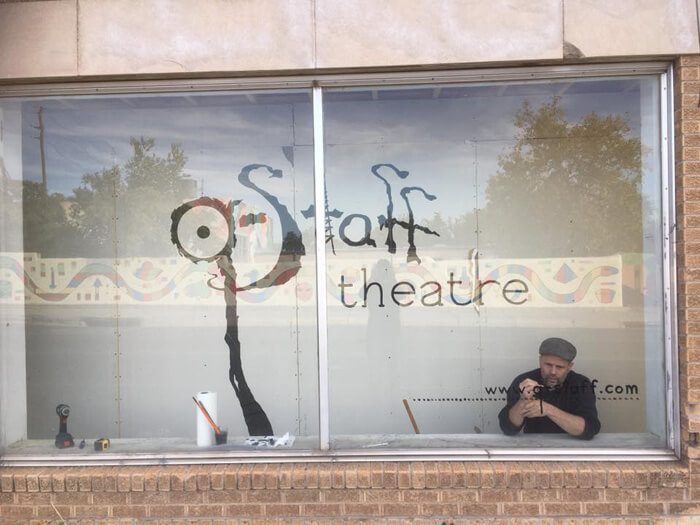
ALBUQUERQUE, NM—Popejoy Hall director Tom Tkach remembers the moment in March 2020 when the COVID-19 pandemic forced the theater, located on the main campus of the University of New Mexico, to perform a 180.
“We were halfway through unloading seven or eight trucks for Escape to Margaritaville. It was ten in the morning,” says Tkach. “We got [governor Michelle Lujan Grisham’s] order to shut down, and right away decided to turn the trucks around. It’s been surreal ever since.”
As local theater companies prepare for a return of in-person performances, they’re confronting financial, logistical, and health and safety challenges. Once theater gets underway this fall, there will be fewer venues to visit due to the permanent closures of several performing arts organizations. For those that remain, they’re sifting through pandemic trauma and into an unknown landscape, but also feel hopeful for a fruitful 2021-2022 season.
Popejoy Hall, Albuquerque Little Theatre, Musical Theatre Southwest, and q-Staff Theatre have plans for live and in-person productions. Albuquerque Little Theatre started off the season earlier this month with Barrymore and The Belle of Amherst.
Each surviving theater found its own path through quarantine. Henry Avery, executive and artistic director of Albuquerque Little Theatre—a community-based company in its ninety-second year—says the theater shuttered the day before Lujan Grisham’s proclamation “for the safety of our patrons… in the middle of Beauty and the Beast, a sold-out show,” Avery explains.
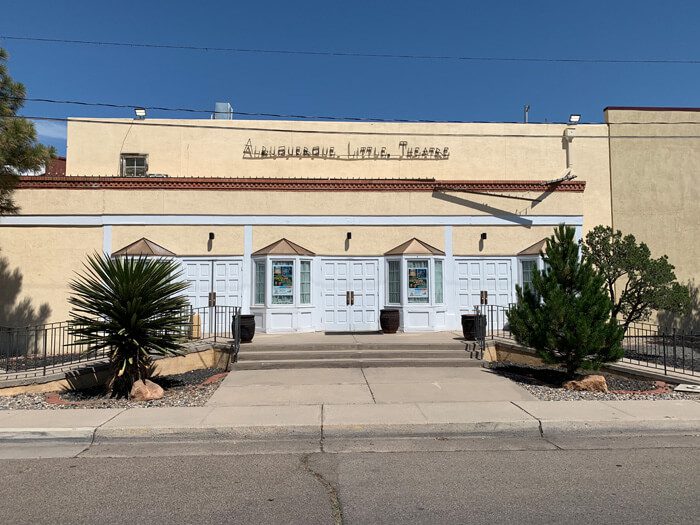
Avery says that a summer sponsorship from Albuquerque-based electric company Public Service Company of New Mexico (PNM) helped them through the uncertainty. Albuquerque Little Theatre, which owns its building, received government funding as well as patron donations. They’ve hired back staff members, but are experiencing difficulty finding cleaners for the space on San Pasquale Ave SW.
“People seem to want to come back,” Avery says. “Our staff and volunteers are required to be vaccinated. Obviously, we can’t control the audience.”
Sandy Timmerman and her partner Richard Van Schouwen run q-Staff Theatre, which can accommodate approximately 100 audience members. Prior to the coronavirus pandemic, the theater produced twenty annual events, ranging from single-night shows to experimental collaborations—for instance, audience members for Promenade, originated by Stereo Akt of Budapest, Hungary, were driven in a bus to watch the performance unfold in various city locations.
“We own our own building. That’s the only reason we survived,” says Timmerman during an in-person interview at the downtown venue located at Broadway Boulevard SE and Lead Avenue SE. When Timmerman and Van Schouwen needed to forgive the rent on their other rental spaces, they dipped into their savings and procured day jobs working at a veterinary clinic and a handyman, respectively.
“The money that the theater generates is used to fund the theater. We have to have income outside of ticket sales,” says Timmerman, who adds that q-Staff Theatre was designed to present experimental performances rather than focus on money-making productions. “I don’t feel that the [theater] community is decimated. In a way, the quarantine has allowed people to take a deep breath and develop their ideas. Albuquerque is a wonderful place for DIY arts because it is so affordable to live here.”
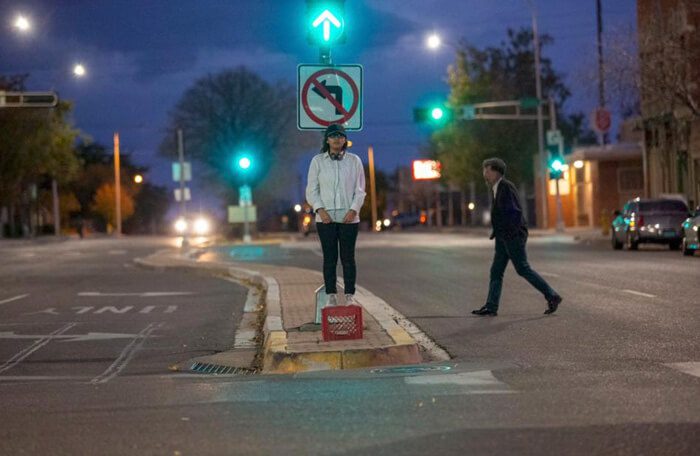
Meanwhile, at least two local theater organizations, Tricklock Company and Aux Dog Theatre, have permanently closed. (Several others did not respond when contacted by Southwest Contemporary.) Juli Hendren, a co-founder of Tricklock Company on Gold Avenue SW in downtown, explained the causes behind its demise during a recent phone call from Kraków, Poland, where Hendren was traveling.
For twenty years, Tricklock produced experimental theater, and also hosted the Revolutions festival that included artists from around the globe.
“A couple of days into the twentieth annual Revolutions, things were getting [difficult]. First, we were only allowed 200 people in a room, then 150, then 100, then fifty, then none,” says Hendren, who functioned as the theater’s executive and artistic director. “In hindsight, it was a giant pandemic, but in early March [2020], we didn’t know what it would be. First, we canceled the festival piecemeal. Then we canceled the whole thing.”
For Revolutions, Tricklock purchased tickets and visas for theater groups from Africa, Europe, and Australia. Hendren, facing an insurmountable financial burden, settled the company’s debts and closed.
“We paid people their fees because they were counting on it. The pandemic made the festival cost three times more than it would have,” says Hendren. “It was already so hard to run a company in New Mexico. I love New Mexico, but there are no resources. By the end, we looked at our finances, and we were so deeply in debt. It was a hard choice, but it seemed like the responsible thing to do.”
All is not lost for Hendren. She and Elsa Menendez recently started an arts and community organization called Revo Inc., which Hendren views as a connection hub between theater groups, resources, and education. She intends to put on a smaller hybrid festival (both online and in-person) in fall 2021.
As smaller theater companies dive headfirst into an unknown realm, Popejoy Hall, which hosts Broadway productions as well as single-run and family-friendly performances, is getting ready for Hamilton, the smash hit by Lin-Manuel Miranda.
Tkach of Popejoy, which is largely funded through tickets sales and contributions, says that they were able to stave off financial collapse thanks to a loan from UNM (“we’ll pay them back,” he says) as well as generous donations. “No one asked for their money back from their subscriptions,” says Tkach.
In January and February 2022, Popejoy is scheduled to present Hamilton in New Mexico for the first time. The musical blockbuster was originally on the calendar for the 2020-2021 season.
“People don’t have to go to Denver or Phoenix to see Broadway productions,” says Tkach.
